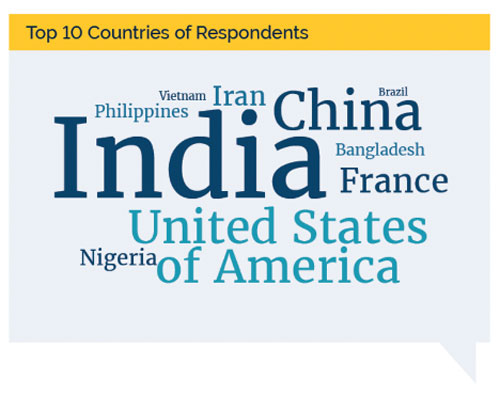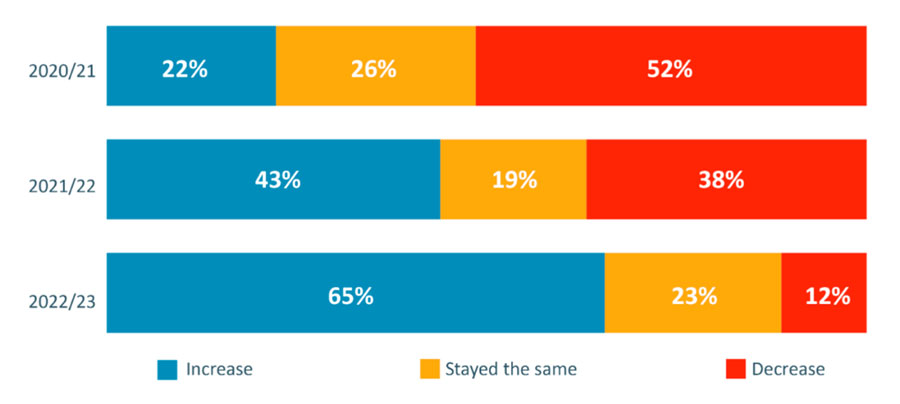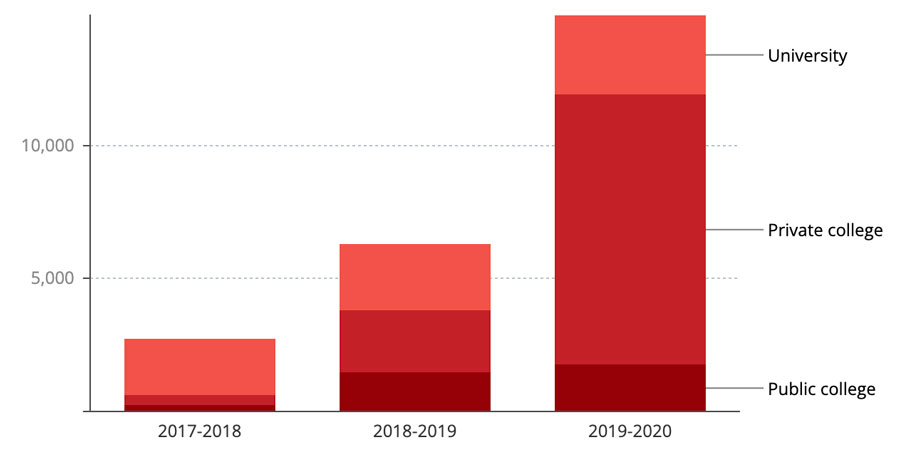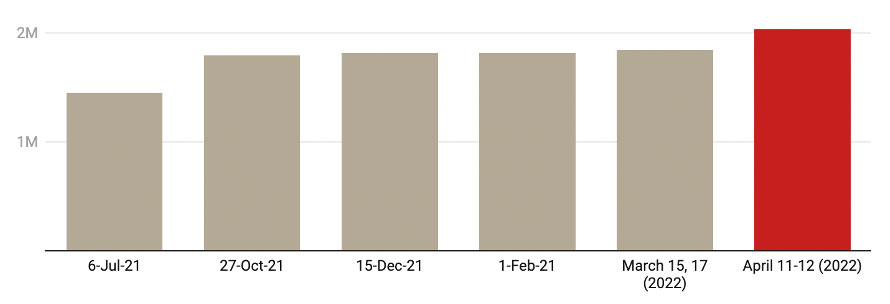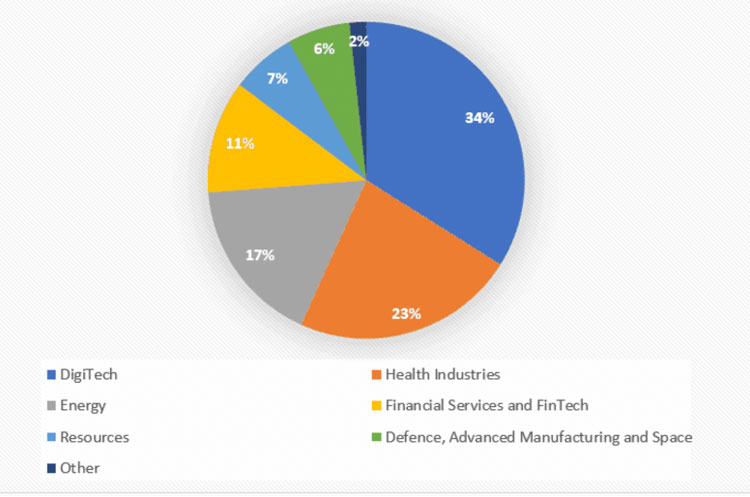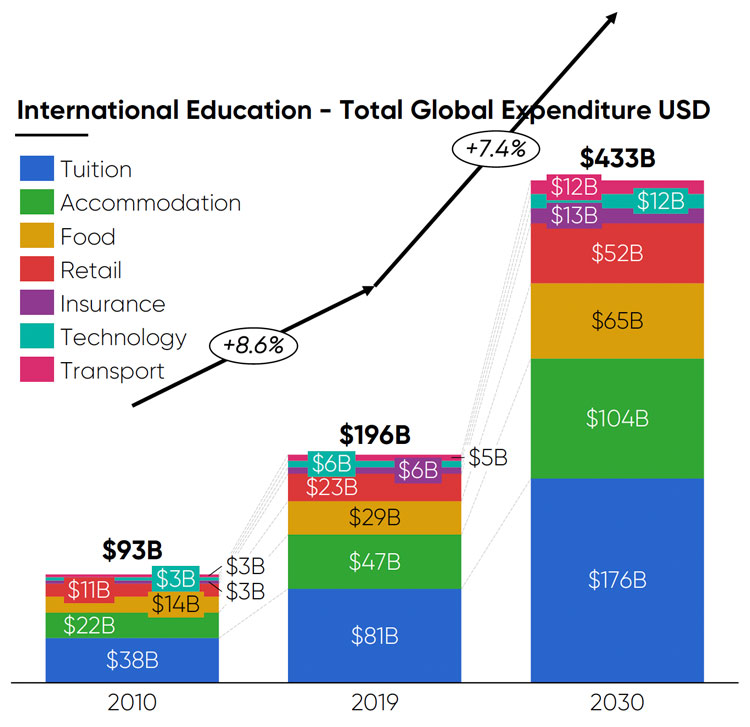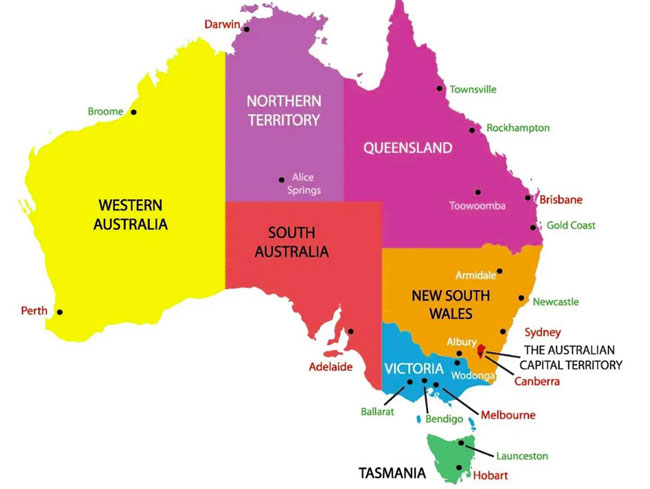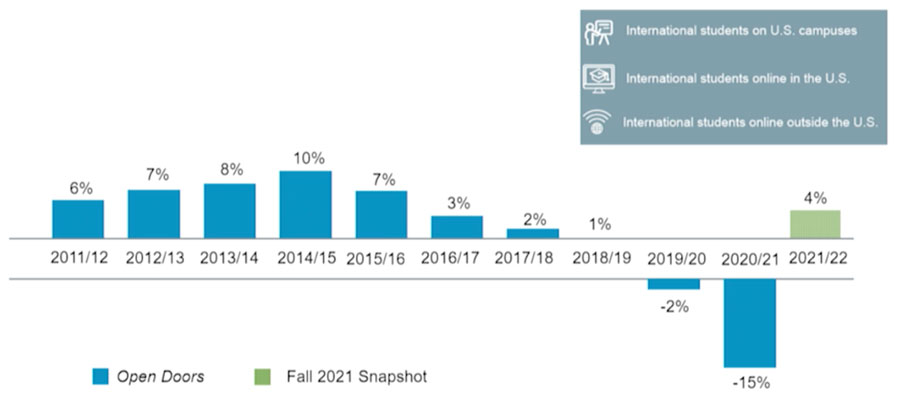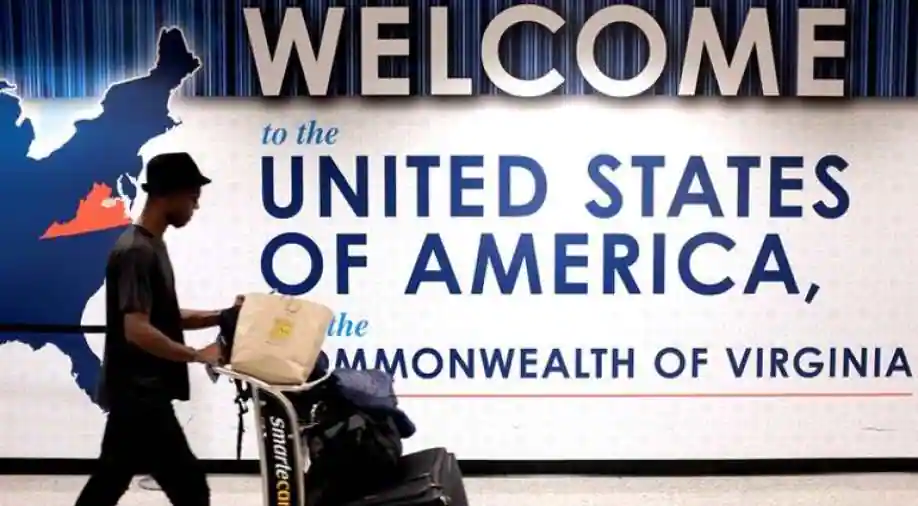Last week, more than 1,200 participants attended the 2021 Australian International Education Conference (AIEC), which featured more than 70 presentations focused on the global international education industry and how it has transformed as a result of COVID. Many of the presentations focused on the challenges and opportunities that educators in Australia face.
The need for the industry to "recover – but recover better" by reflecting on lessons acquired during the pandemic and what they imply for how international students should be recruited, hosted, and supported in the future was a common theme throughout the conference.
New opportunities have arisen as a result of challenges.
Australian universities and institutions have been under tremendous pressure to find ways to keep current international students (many of whom are stranded overseas and studying online) and encourage new international students to enroll. Unlike educators in other top locations such as Canada, the United Kingdom, and the United States, Australian educators haven't had the luxury of waiting for students to return to campus for in-person/hybrid learning. International students have been denied entry for 18 months, significantly longer than in North America and Europe.
No one can deny that this has been a challenging process, which has resulted in painful employment and revenue losses, a diminished competitive position, and a struggle to reassure international students trapped abroad.
However, it was clear at the AIEC conference that Australian educators have taken advantage of the recent disruption to test new business models and recruitment methods that will benefit them not only now, but also in the post-COVID international education scene.
The number of new research "hubs" that Australian institutions and regional organisations have developed independently or with foreign partners in Asian nations was a recurring topic of discussion during the conference. These physical venues, which feature strong Internet access, the presence of other students, and face-to-face academic and career counseling, enable international students to stay connected and motivated while studying remotely.
Quan Dang, regional manager for the University of Auckland’s Southeast Asia international office, told Times Higher Education that a study hub’s social aspect is crucial: “It is a dedicated place for students to meet with their peers, study together and get learning and career support.” Research has shown that important pain points for international students studying online include lack of peer interaction, difficulty staying motivated, inability to find a suitable study space, frustration at not receiving individualised support, and technological/Internet challenges.
Because so many of Australia's overseas students are studying online at the moment, keeping them engaged – and enrolled – is critical, and Australia's investment in study hubs will likely continue to be crucial in the future. This is due to the expansion of two new international student segments:
- Students who are willing to begin their studies online if they can later go to a campus in their preferred destination;
- Students who are willing to study online if they are offered incentives, such as reduced tuition or post-study employment rights in a target country (even if their programmes were delivered totally online and delivered remotely in their home country).
In a AIEC conference session entitled “Embracing a student-led approach to diversification,” IDP Connect IQ client director Andrew Wharton – joined by host Melissa Banks, Head of International Education Centre of Excellence at Australian Trade and Investment Commission, Austrade – presented new research to further fuel Australian educators’ thinking about how to “recover better” after the pandemic.
An IDP survey of 3,650 prospective students from 55 countries who were just starting to look at study abroad opportunities was used in the study. While the overwhelming majority (81%) desired an on-campus experience, a sizable minority (18%) preferred to either (1) begin their studies in their home countries or (2) remain in their home countries to pursue a foreign degree (online or at a branch campus).
Mr. Wharton stated that international students saw cost savings, flexibility in the learning environment, flexibility in the study schedule, and lower admittance standards as important benefits of online study.
Respondents to the survey who were considering studying for a foreign degree in their home country or starting online and subsequently traveling to an abroad campus highlighted seven key factors that influenced their decision. Lower tuition expenses were the most relevant aspect, with 33% of those contemplating exclusively studies in their home country finding this appealing and 43% of those considering an online start to studies being equally delighted.
The availability of post-study job rights, immigration opportunities, and study hubs further improved the appeal of a foreign degree completed in part in the student's home country, according to the study.
Increasing the total pool of overseas enrolments by incentivizing diverse segments is a possibility.
According to the IDP research, COVID has resulted in the development of more segments in the worldwide international student market, which is expanding. International students have become accustomed to hybrid learning, shifted start dates, and the prospect of border closure. The majority prefer an on-campus experience, but a sizable percentage will adopt blended delivery/experience models if they offer appealing benefits, such as affordability, especially since online education has grown much more sophisticated and accepted by employers.
Mr Wharton told the AIEC conference audience that there is a definite opportunity for Australia to reclaim market share of international students by considering new business and delivery models (with branch campuses seen as a competitive strength) but that there “is not a moment to lose:”
“Institutions and organisations that can offer clear pathways to employment and migration will be popular … [consider] providing access to infrastructure, pricing strategies, offering micro-credentials with credits that can count towards a degree.”
According to Mr Wharton, the “start online, travel later” model might be a “major advantage for Australia,” especially if those students who begin studies online in their home countries are well supported through infrastructure such as study hubs.
International branch campuses and pop-up study centers are expected to gain in popularity.
COVID's travel limits hit educators everywhere like a ton of bricks, and the resulting chaos isn't going away anytime soon. The concept of "diversification" has become more nuanced. Institutions are still conscious of the need to diversify the number of nationalities on their campuses, but they are also considering how to vary their delivery strategies. Many schools are establishing or improving systems for enrolling, supporting, and distributing curriculum to international students beyond their borders, as the constraints of the bricks-and-mortar campus have been highlighted.
An article published earlier this year in University World News summarises it well:
“The events of the past year have emphasised the strategic value of having a physical presence in multiple countries. In an increasingly unstable world filled with geo-political jockeying and the lingering and looming pandemic threats, universities with international campuses are likely to look for ways to leverage them more strategically. In addition, universities without international campuses may look to develop physical presences as a strategy to mitigate future threats.”













